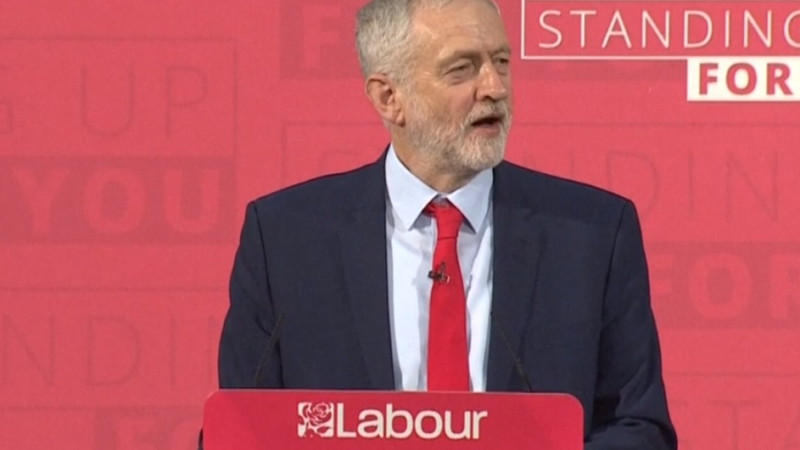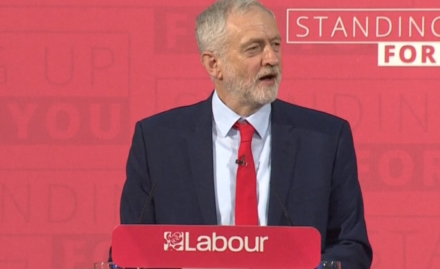

After presidential elections in the US, advisers and strategists for both sides traditionally debate the merits of their campaigns. If a similar phenomenon existed in Britain, a red-faced Team May would probably take the same approach they advised her to take for the television debates, and not turn up.
But if they did, a discussion of the campaign would be important. Just an example – if the literature on US elections is correct, an effective field operation can boost polling numbers by three to six per cent.
In Labour’s case, the campaign is potentially the most interesting example that left-wingers across Europe could look to. In spite of the result, this campaign has pulled our party into the future and left it in its healthiest state in a decade.
The starting point seems a long way away now; an election called out of cynical opportunism, with a hefty lead. May’s team assumed they could railroad through a hardline programme at lightning speed simply by repeating slogans relentlessly, pulling up the drawbridges against press scrutiny, and slandering the opposition.
That battle plan broke apart on contact with reality, and gave Labour its first seat gains and highest vote share since 1997. Labour’s road back to government is now visible.
There were background reasons for this. A frantically assembled campaign will always create errors, especially when May appears to have locked out most of the usual Conservative campaign machine from decision making processes. Besides a campaign can only spin its way out of real life so much – with in-work poverty at record levels, modern-day sweatshops and food and fuel poverty sweeping the country and public services in crisis, people do not feel very “strong and stable.”
But none of that matters if there is no viable alternative. The status quo candidate can scaremonger, the challenger cannot. The challenger must inspire. And there has been no political campaign in modern British history that has inspired to the extent that Corbyn’s has.
Labour’s manifesto was the most widely read document of the election. It became so because it spoke both to people’s material needs as well as their principles and values. It set out a bold set of plans for transforming Britain, realising potential and enriching people’s lives, while pointing to every economic inequity that could be redressed in order to fund sweeping reform.
Of course, a strong slate of values and policies is nothing if not effectively communicated. Under Corbyn, the party machine is now healthier than it’s ever been. Local organisations that were previously moribund are now bursting with canvassers. Local parties, assisted by Momentum, were able to put hundreds of people on the ground for canvassing. Professional organising training has started to move us beyond a wooden Q&A model of door-knocking that is still too common, to a model of effective persuasion. In the last days, Momentum alone knocked on over 1.2 million doors. In many cases, the existing infrastructure struggled to cope with absorbing volunteers and needs further reform.
For the first time, the online and ground campaign were successfully integrated. The phonebanking app used in the two Corbyn leadership campaigns was successfully repurposed for the Labour campaign, while apps like My Nearest Marginal aided 100,000 canvassers. Activist briefings contained a respectable amount of depth, especially for a campaign put together in a few weeks flat. 10,000 people pledged to take the day off on June 8, and at one point, an extra £244,000 was raised overnight.
Meanwhile, the pace and engagement of social media and video work has been nothing short of stunning. Before the campaign, grassroots pro-Labour accounts regularly outmatched official party ones for their ability to reach people. During the campaign, professionally-made content of all kinds; ranging from funny to heart-rending, from uplifting to shocking, reached at least a quarter of Facebook users. In spite of the money and experience behind the Conservatives’ “dark ads” campaign, Momentum regularly outperformed them. Our videos have also reached well beyond Labour supporters, and into key marginal, with just 5.3 per cent of those who watched a video last week having “liked” Jeremy Corbyn’s Facebook page.
Celebrity engagement was more strategic than usual, finding different layers of high-profile figures appealing to different audiences (from the grime scene to public intellectuals to soap actresses) who would come out for Labour.
All of this was grounded in huge rallies serving multi-purpose functions; as media-friendly spectacles that would be streamed into living rooms across Britain, as mobilising and confidence-building forums to motivate potential campaigners and build activist communities, as forums in which to launch policy and pledges, and in a way that visibly showed regard for and interest in places in all corners of Britain.
The voter registration drive at the beginning of the campaign was a scale model of how the whole campaign would go on to function – a mass ground drive assisted by breaking into new and uncharted media, and creating organic political assemblages such as #grime4corbyn.
At the centre of all this sat the candidate, a politician whose authenticity and integrity has never been in doubt, and who is able to run a heartfelt and unscripted campaign in a way that motivates almost anyone who meets him. Spending 30 years fighting for social justice inside parliament has given him an almost unshakeable conviction, alongside an adaptability to new ideas and new forms of presentation that has enabled the best in campaigning talent to be brought out.
The need for strong campaigning does not end at the close of polls. We have successfully won swathes of voters to our programme, our values and our ideas. We have made bold, brilliant land grabs from Canterbury to Stockton.
Those new voters will now be looking for leadership against the most reactionary, but also the most feeble, Conservative government of our times. We have forced numerous u-turns in opposition before and we can continue to do so now, while deepening the level of organisation and community spirit in every corner of this country.
The campaign to change Britain for the better continues, and we will need every Labour member and supporter ready for it.




More from LabourList
Turning the page? Labour’s recovery in the polls show a path to 2029 victory
Restoration announce recommendations for NEC candidates
‘Factionalism at the top is weakening Labour – and handing a gift to Reform’